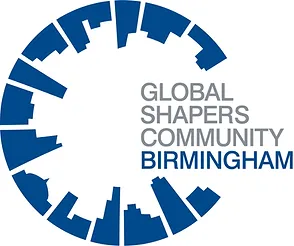We cannot help feeling disappointed as Birmingham City Council begins the search for its eighth Chief Executive in four years.
It is particularly concerning as the replacement for Chris Naylor is set to be another interim hire, on the basis that there is ‘no pool of candidates’ available to take on the job…
We would like to think that Birmingham’s position as the youngest City in Europe and host for the Commonwealth Games 2022 would make leading the city an attractive prospect for any leader in local government. But, if not, surely these opportunities – paired with the ongoing coronavirus (Covid-19) pandemic – call for stable and consistent leadership?
Ultimately, it is up to Birmingham’s elected political leaders to appoint who they think will do the best job for the city.
However, Birmingham Global Shapers, felt it only right to share our own thoughts about the future of Birmingham’s leadership…
#1 What we have learned from Covid-19…
We are still in the midst of a global health pandemic and it has become increasingly clear that managing the crisis will be a marathon, not a sprint. Civic leaders are having to juggle emergency response with recovery planning, and some health experts are describing the need to learn how to ‘live with Covid’ as the world enters its second year of dealing with coronavirus.
More than ever, the situation demands stable leadership – that allows for trust to be built across an organisation, between organisations and out in the community.
Consistent leadership will also be key to capitalising on change.
The Global Shapers Community (GSC) are all very familiar with Klaus Schwab’s (founder of the World Economic Forum & the GSC) new work: ‘The Great Reset.’ To Schwab, ‘the pandemic represents a rare but narrow window of opportunity to reflect, reimagine and reset the world.’ He argues that Covid-19 provides the chance to address longstanding inequalities and flaws in how the world works and – crucially – that acting on this opportunity for change is the only way to avert economic, social and environmental crises in the future.
So, we must ask: without a leadership that has one foot each in the past and future, will Birmingham be able to realise the radical change the city needs?
#2 What we knew already…
Of course, we are hardly the first collective to think about the future of public sector leadership – our city has actually been a centre of thought leadership on the subject.
University of Birmingham’s Institute of Local Government Studies (INLOGOV) reimagined public sector leadership with the publication of its ‘21st Century Public Servant’ in 2015. The report outlined the different skills, roles and values needed of today’s public sector workforce, and the compassionate and dispersed leadership needed to drive it. The model has been widely adopted across local government – but it was developed in partnership with Birmingham City Council.
There is activity and opportunity to push thinking further forward still.
In 2020, the authors of ‘21st Century Public Servant’ reflected on the report in light of Covid-19 and identified trust and endurance as two new priorities for the sector. Autumn 2021 will see the launch of the Birmingham Leadership Institute (University of Birmingham). And the confirmed plans to set up a new HQ for the Ministry of Housing, Communities and Local Government in the city of Wolverhampton will hopefully bring new opportunities to rethink the way places are designed and led.
We hope to see our city and the wider West Midlands region at the cutting edge of leadership in practice, as well as in theory.
#3 Thinking forward…
As we look into the future, the idea of Birmingham (or the country more broadly) lacking the necessary talent to fill top jobs is an insult as much as a concern. There is a breadth of talent both in the City and the region and it is difficult for us to come to terms with there is ‘not a pool of candidates currently available’.
And, if this is currently the case, it is surely a pitfall that needs to be addressed.
Birmingham’s one-million-strong population is super diverse and 40% of residents are aged under 25. The youth and diversity are huge assets for the city and region – but only if people are given the chance they need to develop aspirations and achieve their full potential.
Diversity and inclusion have been on the agenda for some time now, and the inequalities highlighted by Black Lives Matter and the pandemic have turbocharged efforts to address injustice. In September, Birmingham City Council published a report on the way it will ‘battle’ inequality – from bringing in HR initiatives such as the ‘Rooney Rule’ to investing in a diverse leadership programme. Regionally, the West Midlands Combined Authority (WMCA) Leadership Commission is gearing up for a new wave of activity to address the ‘diversity gap’ it identified in 2018.
It is clear that deeds, not words are needed to drive change.
And the City will need to be bold, brave and relentless in its efforts to build a leadership that reflects the diversity of communities – but also in driving that systemic change needed to create opportunities for underrepresented communities at scale.
So what next…
While we don’t know what the future of Birmingham’s leadership will look like – at least in the short term! – one thing is for certain:
With Birmingham on the global stage next year, we hope to see a city in which there is equal opportunity, with young people at the heart of decision making, and a commitment by all those in the corridors of power in the city to ensuring that our leadership provides a stable base from which to move forward.

